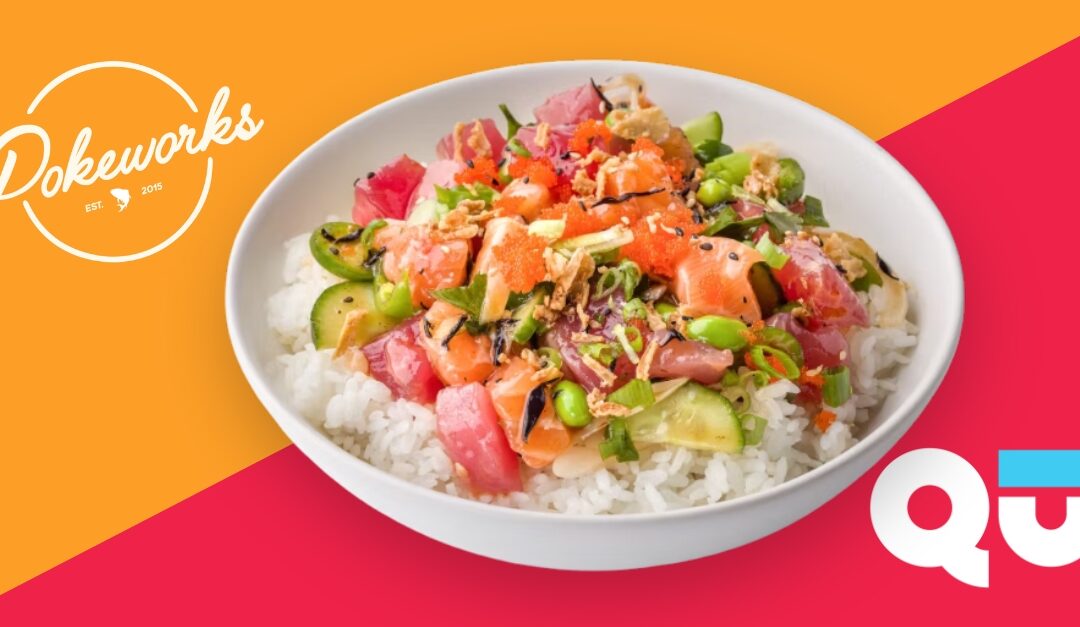Growth is what you would call one of those good problems. But a problem nonetheless, especially if a brand doesn’t have a high-performance tech solution to support it.
Pokeworks has been blowing up lately, with 11 percent same-store sales growth in April and a newly signed 10-unit deal in San Antonio. With Qu’s unified tech platform, which Pokeworks started using in January, staffers are breathing easier.

Ha Ly, head of marketing for Pokeworks
“It’s pretty nimble in terms of how fluid the software works,” said Ha Ly, the brand’s head of marketing, in an interview, “It has all the right plugins and integrations, and the sprint cycle for development is every three weeks, which is how often the engineering team rolls out updates, which I find comforting.”
He’s not the only employee comforted. “The people behind the point-of-sale machines are having an easier time,” he said. “The snappiness of the UI on the screen is making a difference.”
And just in time. Pokeworks is in the midst of a busy summer. “We’ve seen our transactions climb in the past couple months,” he said.
He expects that to continue through the fall, when sales in the category tend to peak. This is all-hands-on-deck time.
What Pokeworks has asked of Qu is to provide a platform that delivers operational excellence without becoming the star of the show.
“We don’t want the technology to get ahead of the actual service,” he said. “We want consumers to go to the counter, tap their cards, have their payments processed, seamlessly. To be sure, we have some nifty, shiny new screens up front in our stores, on the counter But from a consumer standpoint the experience is pretty muted, which is the way it should be. We want consumers to remember our food and not how fast their payment processed.”
The $6.7 billion poke category is projected to grow 16 percent annually through 2034. That’s a lot of tuna. Qu’s platform will allow the brand to do things like roll out price changes, or pause items due to supply constraints, which is important in a time of fluctuating tariffs. It also allows Pokeworks to pull real-time sales and labor data through a voice command. “Behind the scenes, it’s just a smoother experience,” he said.
Having instant access to data is essential since challenges like labor costs aren’t abating.
“Our cost of labor is still much higher than it used to be,” he said.
Cost inflation has also been nettlesome. The brand felt pressure to hike prices during last year’s challenging environment. It’s done its best to hold the line while shoring up operational efficiencies in the brand’s 65 U.S. and 10 international locations, including several new stores in Toronto.
“We’re doing our job, fixing our operations, delivering fresh food and better options for consumers,” he said. “We’re still navigating the climate. We’re doing our best not to make wrong moves and alienate guests. We’re putting a new focus on cleanliness, fresh ingredients, better ingredients. It’s all playing together to improve our store dynamics.”
Not that it’s spiking the football and claiming victory. Tech is like a shark; it never stops moving. Qu’s mighty-fast software updates keep the brand well-armed to handle future expansion.
“We’ve made tons of tech changes in the past several months,” he said, “and we see Qu as being where all of our point-of-sale systems will be migrating to.”


